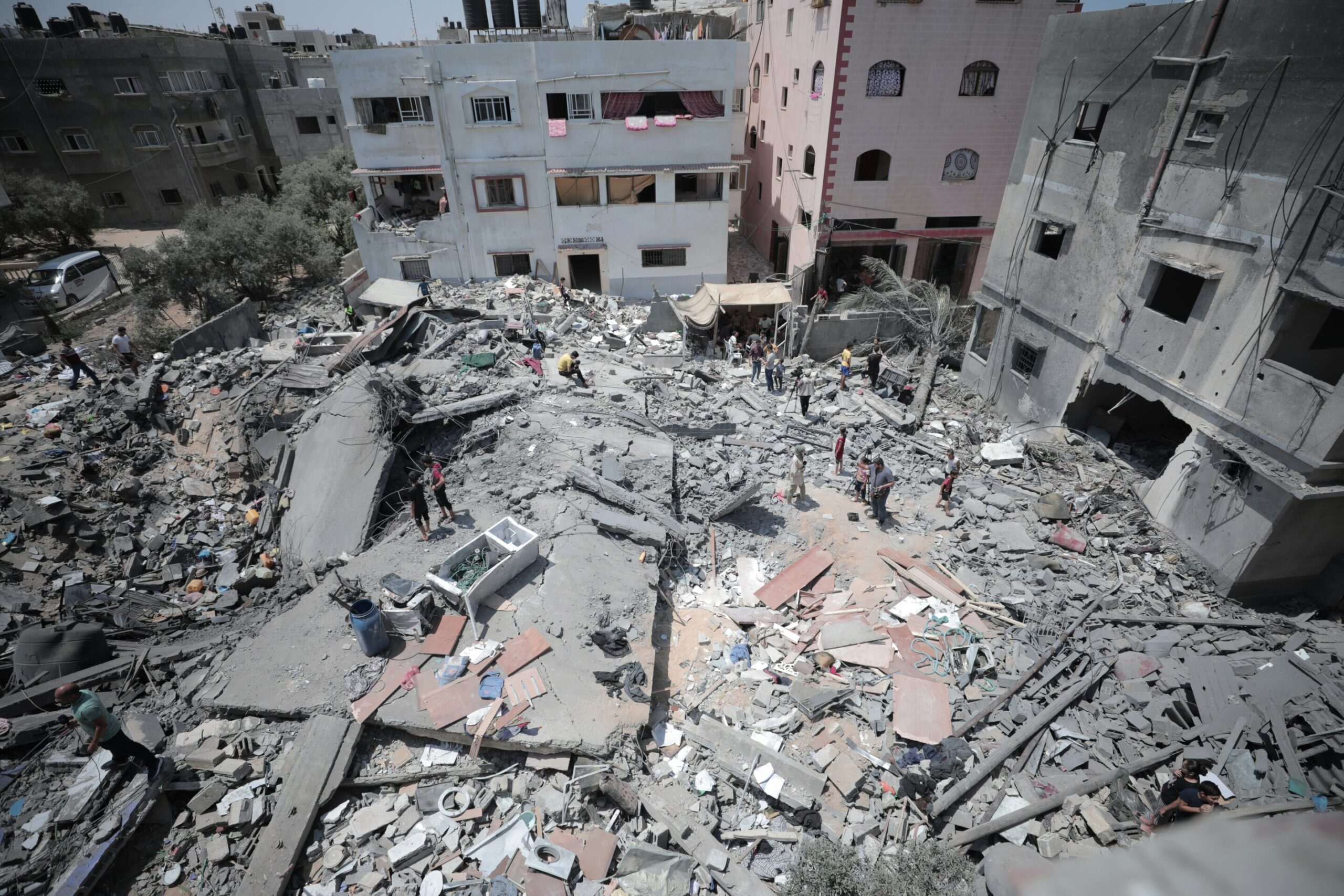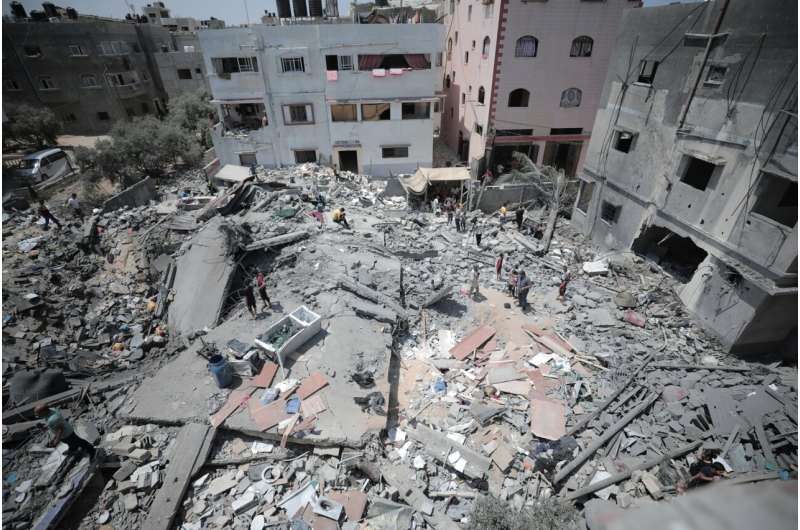

In a paper on international law in Gaza, Professor Janina Dill of the Blavatnik School of Government, Oxford University and co-author Tom Dannenbaum (Fletcher School, Tufts University) argue that the role of law in restraining war risks being stifled by too much focus on the threshold for retrospective accountability for war crimes. They argue that, when applying the right threshold, Israel is in violation of international humanitarian law and that outside countries should suspend material assistance such as selling weapons.
The devastating human toll of the Gaza conflict has underscored the urgent need for international humanitarian law to fulfill three distinct functions, the first two of which are being neglected in legal debate, say the authors:
- Guiding and instructing states and individuals ahead of time, and thus hopefully averting (further) violations of the law (“ex ante action-guidance”);
- Allowing countries outside the direct conflict to evaluate in real time the legality of the parties’ actions and ensure they are not indirectly facilitating war crimes, for example through weapons sales (“concurrent third-party evaluation”);
- Holding states and/or individuals accountable for violations retrospectively through the courts (“ex post accountability”).
They argue that an exclusive focus on the third role is unhelpful. “A lot of the Gaza discussion is focused on concepts and institutional frameworks that relate to retrospective accountability,” says Janina, who is Professor of Global Security at Oxford’s Blavatnik School of Government.
“If Hamas’s and/or Israel’s leaders have committed war crimes and are to be held accountable for them by the International Criminal Court, that is many years away—and the threshold for being found guilty is rightly very high. What we should focus on now is the real-time legal assessments of whether or not current or imminent acts are lawful. These serve the different—and urgent—purpose of preventing and constraining unlawful harm. More attention is needed on such assessments and on which thresholds are relevant to them.”
The paper states that both Hamas and Israel have committed multiple violations of international humanitarian law, and that while this is rarely denied in relation to Hamas, Israel is different. “The prevalence of violations is not unique to this conflict. What is unusual in Gaza is that catastrophic harm coincides with … [a] claim of legal compliance: Israeli officials consistently and often proactively argue that their military operations adhere to international law, with support from some legal experts.”
Both critics and defenders of particular military operations by Israel have tended to invoke legal concepts relating to accountability.
Critics may refer to war crimes (as opposed to “mere” violations of international law) in order to express stronger disapproval. But this then invokes the standards and burden of proof that being found guilty of a war crime through the International Criminal Court demands—which can lead to a distracting debate about those standards that, the authors argue, isn’t always relevant to preventing or constraining violations of law in the present.
Conversely, those defending particular military operations may call attention to the law’s accountability function as part of a demand to suspend legal judgment until contested facts can be clarified—since, as the paper acknowledges, “in war, information is partial, cognitive biases are primed, and propaganda machines operate at full tilt.”
But, the authors say, “International humanitarian law is also meant to constrain belligerents’ actions in advance and to help third states evaluate these actions so they can concurrently meet their own obligations. Law must discharge these functions while hostilities are ongoing or not at all … international law must provide the doctrinal resources to navigate the uncertainty and contestation that characterizes armed conflict.”
The paper, “International Law in Gaza: Belligerent Intent and Provisional Measures,” (forthcoming in the Journal of International Law), is one such resource, offering views and analysis on issues of intent, of recklessness, of the distinction between military and civilian people or objects, of genocide allegations, and of aims versus means.
The authors make clear that they do not agree with Israel’s claims of compliance with international humanitarian law. One of several examples relates to siege and starvation. “When the only means to starve militants is deliberately starving the civilian population, the lawful ultimate goal cannot authorize the unlawful means,” they said.
Much of the paper focuses on the issue of intent within international law, since Israel and others have argued that the purpose of IDF operations and attacks is never to cause civilian death or harm, and so the actions are lawful.
The authors refute this argument. “The relevant violations do not require purposively bringing about prohibited consequences such as dead or starved civilians [in order to be unlawful]. When not unduly shaped by standards developed for law’s accountability function, an application of [established law] in real time demands that Israel change course and third states suspend material assistance.”
More information:
Paper: International Law in Gaza: Belligerent Intent and Provisional Measures
Provided by
University of Oxford
Citation:
New legal research on Gaza war urges immediate action (2024, October 22)
retrieved 22 October 2024
from https://phys.org/news/2024-10-legal-gaza-war-urges-action.html
This document is subject to copyright. Apart from any fair dealing for the purpose of private study or research, no
part may be reproduced without the written permission. The content is provided for information purposes only.